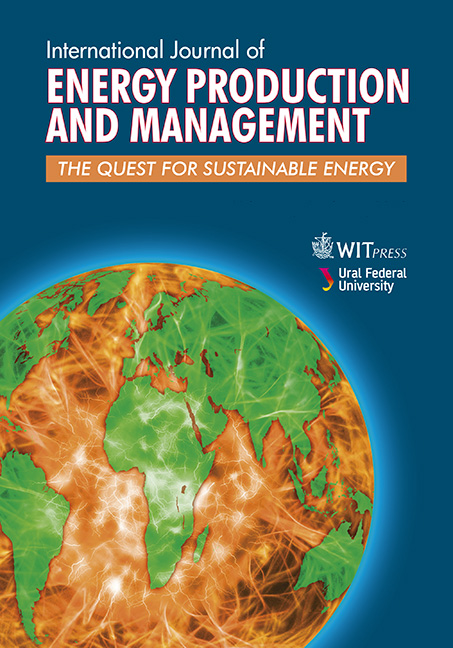Analysis of characteristics of a 5 kW power plant based on solid oxide fuel cells in four modes
Price
Free (open access)
Volume
Volume 2 (2017), Issue 1
Pages
9
Page Range
60 - 69
Paper DOI
10.2495/EQ-V2-N1-60-69
Copyright
WIT Press
Author(s)
J. VOLKOVA, V. MUNTS, N. PLOTNIKOV & J. MUNTS
Abstract
The paper presents the results of testing a 5 kW power plant based on solid oxide fuel cells (SOFC) with natural gas serving as fuel, equipped with a steam reformer combined with a burner. It includes a diagram of the power plant and a result analysis procedure based on heat and mass balances elaborated for the reformer, SOFC stack, catalytic burner and heat exchanger. The experimental findings were used to calculate the actual ratios of fuel utilization, oxygen consumption from cathode air in the electrochemical generator using two methods (heat and energy balances and Faraday’s law). A comparison of the results of the two methods revealed a small error, which was observed mainly in the second mode (60%).
Parameters of the power plant by ‘UIC’ LLC were reviewed at four steady running modes: 40% of SOFC’s power utilization (2 kW), 60% (3 kW), 90% (4.5 kW) and at the peak mode of 110% (5.4 kW), where the consumption exceeds the rated power by 10%.
Calculation of the equilibrium composition of conversion products, at temperatures (t3) registered at the reformer’s outlet, allowed the formula for the natural gas reforming reaction to be obtained.
A simplified method of calculating the composition of the natural gas steam reforming products is described; the results are compared with calculations made in the program Gaseq, using the software package Mathcad for the solution of nonlinear equations.
Analysis of the results showed the effectiveness of a simplified method at temperatures above 800°C; in that temperature range, this method has an error of less than 0.5%, which is sufficient for using in practice.
Keywords
result of experiments, simplified method of calculating, solid oxide fuel cells, steam reforming of natural gas, studying of performance.




